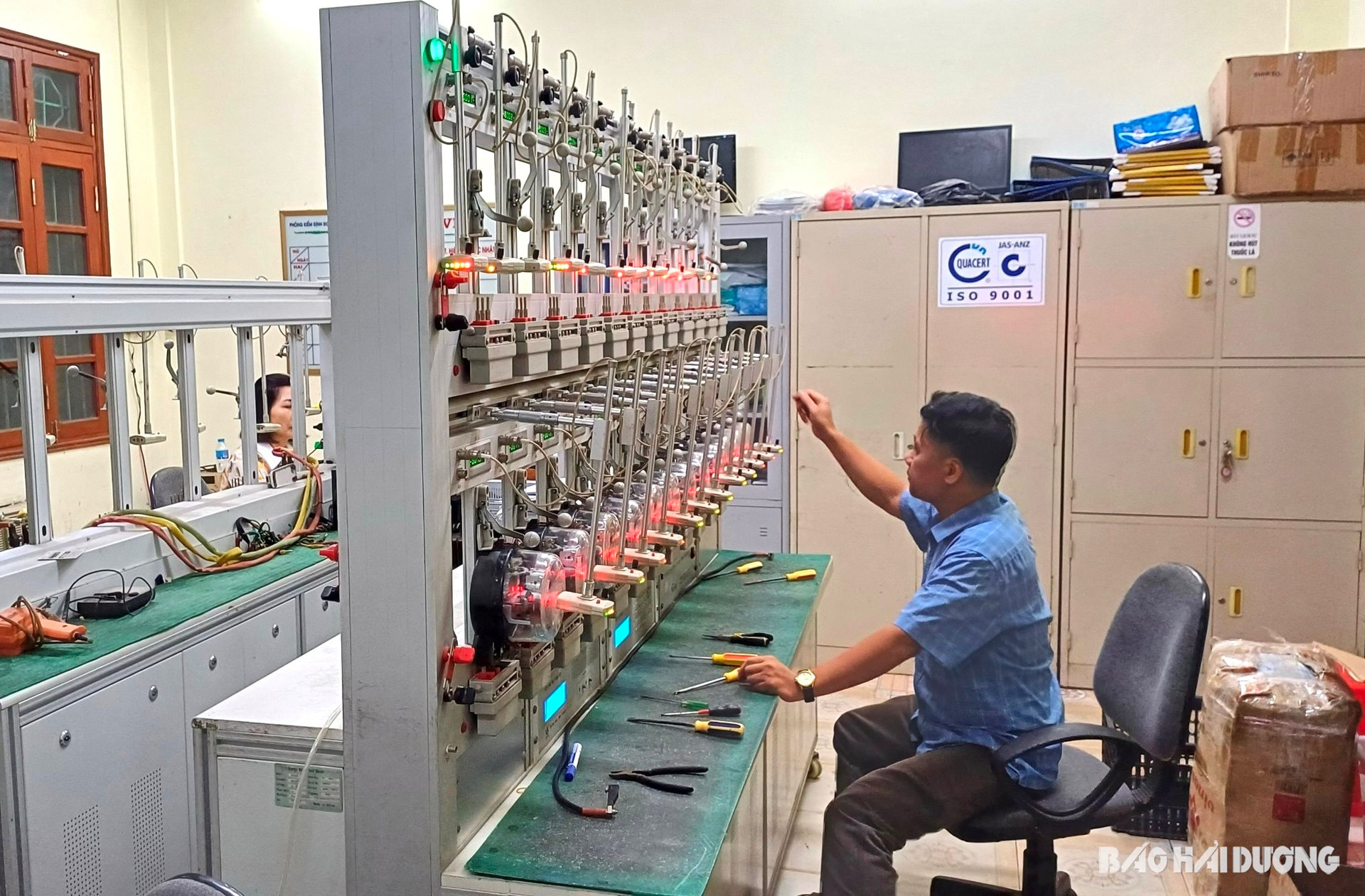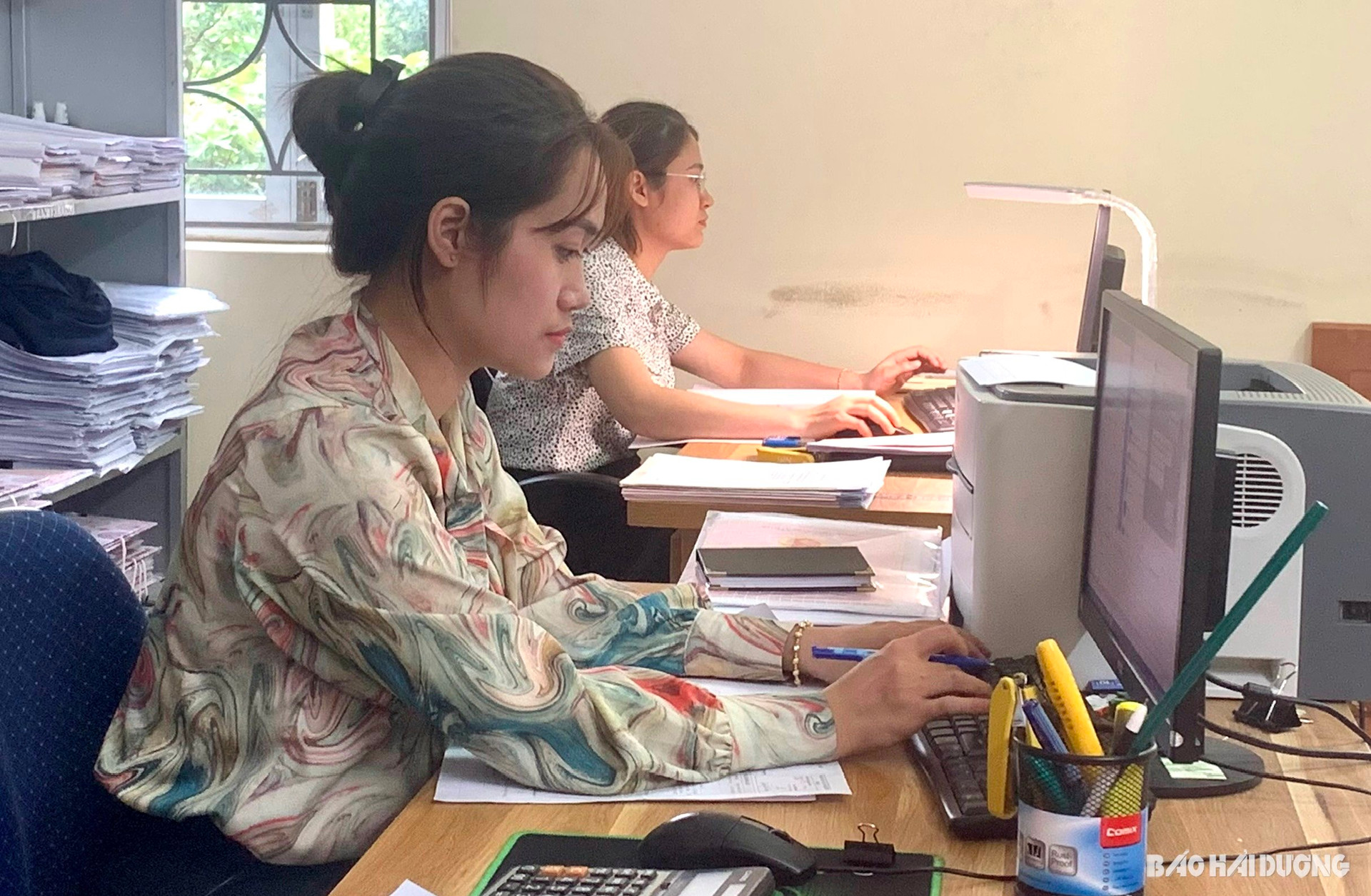From July 1, the basic salary was officially adjusted by the State to increase from 1.8 million VND to 2.34 million VND, an increase equivalent to 30%. For many self-financed public service units in Hai Duong province, salary increase creates great pressure due to difficult revenue sources.

Salary arrears before increase
The Center for Measurement, Testing and Scientific Information under the Department of Science and Technology has implemented a financial autonomy mechanism since 2020. After more than 3 years of autonomy, the unit has encountered many difficulties due to the annual costs of maintenance, repair, and calibration of equipment.
In recent years, many businesses have had difficulty operating, production has been reduced, and the need for inspection and measurement has also decreased. Competition between units in the same field has also increased...
Mr. Vu Van Tan, Director of the Center for Measurement, Testing and Scientific Information, said that on average, each year the unit spends over 2 billion VND on salaries, allowances and other expenses to ensure operations. According to the new salary level, the unit needs more than 600 million VND to pay.
“Currently, we only pay monthly salaries for staff and temporarily do not pay their business expenses. Everything depends on the revenue from now until the end of the year to be able to calculate the balance,” said Mr. Vu Van Tan.
The Labor Culture House under the Hai Duong Provincial Labor Federation has also been financially autonomous since 2020. The source of revenue to ensure salary payments and other expenses depends on the source of public asset leasing. Since 2020, due to the impact of the Covid-19 epidemic, the unit's leasing activities have been greatly affected. The unit has not had a project for leasing public assets, so it cannot carry out long-term leasing but only short-term leasing (under 15 days) according to regulations. Therefore, the operation of the Labor Culture House is facing many difficulties. The unit owes salaries to its staff for the past 2 months.
Mr. Nguyen Khanh Toan, Director of the Provincial Labor Culture House, said that the unit currently has 7 officers and employees, but the revenue from property rental is facing many difficulties, not ensuring regular expenses. Along with worrying about salary increases, the unit also has to worry about paying additional related expenses such as social insurance and unemployment insurance. This additional amount is quite large while the salary fund is currently not available to pay.
Cwill minimize all costsyes

The Hai Duong Provincial Land Registration Office has been financially autonomous since January 2023. The unit currently has 215 officers and employees. The unit's revenue mainly comes from collecting fees and public service fees; fees for land measurement, adjustment, and inventory services; and fees for providing land information services to organizations and individuals according to regulations. On average, each month, the unit has to spend nearly 2 billion VND on salaries and allowances for officers and employees. According to the new salary level, each month the unit needs an additional 600 million VND to pay. "To ensure stable income for employees, the unit must balance revenue sources, reserve sources, and minimize all other expenses," said Mr. Nguyen Van Tieu, Director of the Provincial Land Registration Office.
According to the Department of Finance of Hai Duong province, in the period of 2023 - 2025, the whole province has 123 self-financed public service units implementing Decree 60/ND-CP dated June 21, 2021 of the Government stipulating the financial autonomy mechanism of public service units. 6 units self-guarantee investment and regular expenditures; 33 units self-guarantee regular expenditures; 65 units self-guarantee part of regular expenditures and 19 state budget units guarantee regular expenditures.
According to the reporter's investigation, there are currently many units that do not have enough revenue to cover expenses, owe salaries, and delay paying salaries to employees. These include units in the medical field, whose mission is to care for and treat patients.
According to Resolution 27-NQ/TW on salary reform effective from July 1, 2024, public service units, based on their financial situation and salary autonomy based on performance, decide on salary levels paid to civil servants and employees. In case revenue is lower than expenditure, public service units proactively reduce the salary fund accordingly. However, the salary level paid to civil servants and employees must not be lower than the salary regime prescribed by the State. When the State adjusts salary policies, public service units with financial autonomy ensure additional salary increases from the unit's revenue sources; the State budget does not provide additional funding.